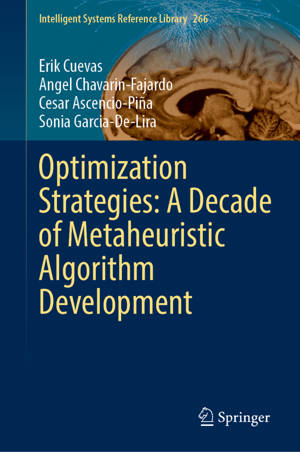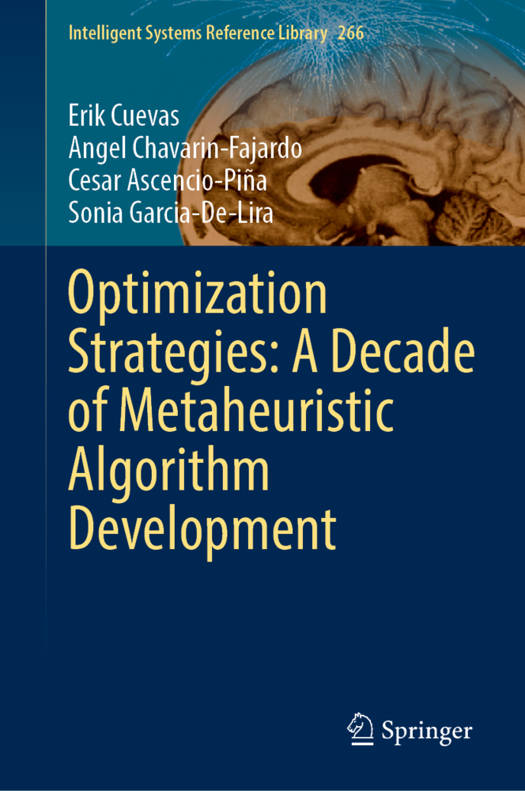
- Retrait gratuit dans votre magasin Club
- 7.000.000 titres dans notre catalogue
- Payer en toute sécurité
- Toujours un magasin près de chez vous
- Retrait gratuit dans votre magasin Club
- 7.000.0000 titres dans notre catalogue
- Payer en toute sécurité
- Toujours un magasin près de chez vous
Optimization Strategies: A Decade of Metaheuristic Algorithm Development
Erik Cuevas, Angel Chavarin-Fajardo, Cesar Ascencio-Piña, Sonia Garcia-De-LiraDescription
This book is to explore the development of metaheuristic algorithms over the past decade, focusing on key advancements in their components and structural features, which have driven progress in search techniques. This analysis aims to provide readers with a thorough understanding of the fundamental aspects of these methods, which are essential for their practical application. To offer a broad perspective on the evolution of metaheuristic algorithms, this book reviews 11 specific algorithms developed by the evolutionary computation group at the University of Guadalajara over the past 10 years. These algorithms illustrate the most significant mechanisms and structures discussed in the academic and research communities during their development. By studying these examples, readers will gain valuable insights into the innovative methods and strategic improvements that have shaped the field. The book is designed from a teaching standpoint, making it suitable for undergraduate and postgraduate students in science, electrical engineering, or computational mathematics. Moreover, engineering practitioners unfamiliar with metaheuristic computation will appreciate how these techniques have been adapted to address complex real-world engineering problems, moving beyond theoretical constructs.
Spécifications
Parties prenantes
- Auteur(s) :
- Editeur:
Contenu
- Nombre de pages :
- 447
- Langue:
- Anglais
- Collection :
- Tome:
- n° 266
Caractéristiques
- EAN:
- 9783031810121
- Date de parution :
- 07-03-25
- Format:
- Livre relié
- Format numérique:
- Genaaid
- Dimensions :
- 156 mm x 234 mm
- Poids :
- 820 g

Les avis
Nous publions uniquement les avis qui respectent les conditions requises. Consultez nos conditions pour les avis.






